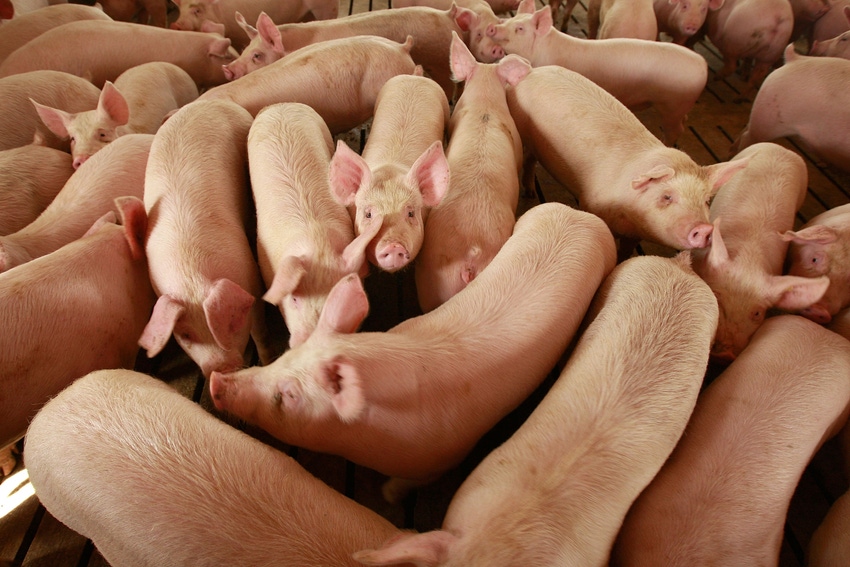Research shows that vaccination against lawsonia in pigs may reduce salmonella shedding.
March 30, 2018

Scientists at the University of Minnesota have discovered that a single swine vaccine can control both the problematic swine pathogen Lawsonia intracellularis and the human pathogen salmonella, according to a note in a recent "Fresh from the Field" weekly album from the U.S. Department of Agriculture's National Institute of Food & Agriculture (NIFA).
L. intracellularis causes proliferative porcine enteropathy in swine, characterized by decreased weight postweaning and diarrhea, and salmonella is linked to more than a million human cases of illness in the U.S., about 10% of which are associated with pork and pork products, NIFA said.
The new study suggests that the vaccine against L. intracellularis reduced shedding of salmonella, but it is unclear why this occurs, NIFA said. It is almost certain that the anti-lawsonia vaccine is not directly responsible for the reduced shedding of salmonella, although the vaccine did change the composition of the gut microbiome.
NIFA said the scientists hypothesized that these changes in the microbiome composition led to a reduction in salmonella. While vaccines that directly target salmonella are available on the market, this approach offers certain advantages: Manipulating the microbiome with an anti-lawsonia vaccine can protect against a diversity of salmonella strains and is a cost-effective practice that is already in place on many farms, NIFA suggested.
This study reconfirms a well-established notion that vaccines are an effective way to control most pathogens, with some vaccines offering unexpected "two-for-one" benefits.
NIFA said it supports this project through the Agriculture & Food Research Initiative.
More information can be found in the Scientific Reports article.
You May Also Like


.png?width=300&auto=webp&quality=80&disable=upscale)
